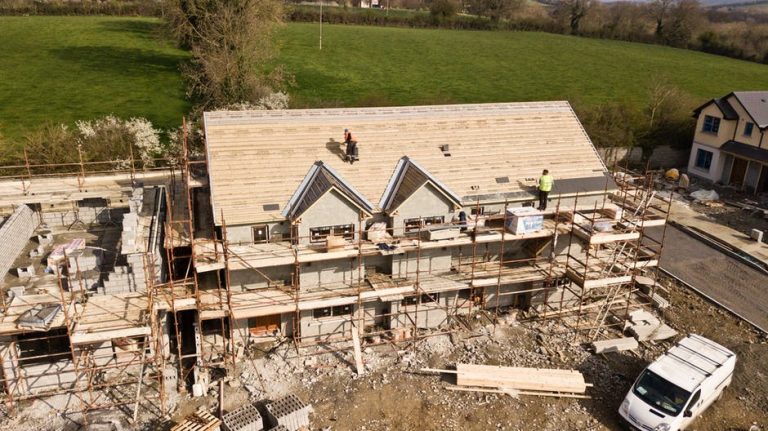A boiler is the heart of your home’s central heating system, providing warmth and comfort to your household. However, like any major appliance, boilers have a limited lifespan and will eventually need to be replaced.
You may wonder about the cost of replacing your boiler in 2023. With so many available options, choosing the right one for your needs can be overwhelming.
In this article, we’ll provide a breakdown of the costs of different boilers. By the end, you’ll understand what to expect and be better equipped to make an informed decision.
Signs You Need a New Boiler
 As a homeowner, it is crucial to know the signs that indicate it may be time to replace your boiler. One of the most common indicators is age; boilers typically last around 15 years before they become less efficient and break down more frequently.
As a homeowner, it is crucial to know the signs that indicate it may be time to replace your boiler. One of the most common indicators is age; boilers typically last around 15 years before they become less efficient and break down more frequently.
Other signs to look out for include unusual noises emanating from the boiler, leaks or drips around the unit, uneven heating in different parts of the house, and a sudden increase in energy bills without explanation. If any of these symptoms present themselves, it is essential to call a professional technician to assess whether a repair or replacement is necessary.
However, investing in a new energy-efficient boiler can lead to long-term cost savings on utility bills and consistent heating throughout your home. It is always better to address these issues proactively than wait for an emergency where you would need unexpected repairs or suffer from inadequate heat delivery. By taking action early, you can avoid the inconvenience and expense of a boiler breakdown and ensure that your home remains comfortable and warm all year round.
Cost of a new boiler
On average, a new boiler costs between £500 and £3,000. However, it is important to note that these prices do not include the cost of labor, which can range from £600 to £1500 additionally.
Factors that Affect Boiler Cost
One primary factor affecting boiler cost is the type of boiler being installed. The size and efficiency level of the boiler also plays a crucial role in determining the overall cost. In addition, installation costs, including labor fees and post-installation maintenance expenses, can add to the total expenditure.
Equally important are factors about site preparation such as ductwork modifications, electrical tie-ins, piping runs, and construction that require special measures for foundation work or disabling structures impeding installations.
Other contributors include the type of fuel source your home requires for heating, regulatory/permitting requirements that drive up insurance costs, equipment warranties, and, most importantly, geographical location. Building owners in areas with high operational costs spend more on boilers due to inflationary price pressures on labor and material components.
Evaluating these key factors accurately will help you make an educated decision in choosing an appropriate unit without making cost compromises compromising on quality efficiency or longevity of operation within your budget allocation.
Types of Boilers and Their Costs
There are mainly three different types of boilers: Combi-Boilers, System-Boilers, and Conventional-Boilers. Each of these boilers comes in a different output range and has
additional costs. To know more detail read this helpful article about the types of boilers available.
Combi Boilers
A combi-boiler, or a combination boiler, is a highly efficient heating system that simultaneously provides central heating and hot water in one compact unit. Unlike traditional boilers that require separate tanks for cold water storage and hot water cylinders, combi boilers use an integrated heat exchanger to supply hot water on demand. This means homeowners can enjoy unlimited hot showers without having to wait or compete for hot water amongst other users in the house.
Combi boilers are energy-efficient because they do not require pre-heating before use, which saves both money and energy consumption. Furthermore, their compact size makes them popular in smaller homes with limited space. Despite requiring professional installation and regular servicing, combi boilers are increasingly becoming a top choice for homeowners who value convenience and efficiency.
Cost of Combi Boilers
The cost of a combi-boiler in the UK can vary significantly depending on factors such as brand, size, and complexity of installation. On average, a mid-range combi-boiler with installation included can cost around £2,000-£3,500. However, higher-end models and buildings requiring more work can push the price closer to £5,000.
System Boilers
A system boiler refers to a heating system that directly heats water in a sealed cylinder before distributing it throughout the house for hot water and heating purposes. Unlike conventional boilers, often vented out of the house, systems boilers utilize an additional main pump and expansion vessel to increase water pressure. This setup ensures a ready hot water supply and eliminates any sensitivities surrounding potential tank damage.
The closed-circuit nature of these systems also allows for easy installation into pre-existing central heating layouts without disturbing any other pipes or radiators already in place. As with most boiler types, professional installation and maintenance services are often needed to ensure consistent operation over time.
Cost of System Boilers
The cost of system boilers starts at around £500 for a basic model but can range up to £2,000 or more for higher-end options. Also bear in mind the additional labour cost of £300 to £500.
Conventional Boilers
A conventional boiler, or a regular boiler, is a heating system that utilises a hot water storage cylinder and feeds the water to radiators to provide warmth in your home. It draws cold water from the main supply into its primary heat exchanger, which heats the water before moving it through the pump and directing it towards the hot water cylinder. Once heated, this hot water either flows to taps (if run through a separate coil) or sends more warm water to radiators as needed.
These boilers are typically found in older homes with traditional central heating systems and may require an expansion tank and additional piping for installation. Although they take up more space due to their inclusion of extra parts – including tanks – they tend to be reliable sources of heat that offer strong heating capabilities on-tap that quickly satisfy your living needs.
Cost of conventional boilers
Depending upon the wattage output, the cost of conventional boilers from different brands varies in-between £730- £2300. Additionally, getting quotes from multiple installers and comparing the services provided is recommended, as installation charges can also impact the final price of purchasing a conventional boiler in the UK.
How much does replacing a back boiler with a conventional one
cost?
When considering the cost of back boiler replacement with a conventional one, it is important to consider several factors. Firstly, the cost of the new boiler itself can vary depending on its size and efficiency rating. Additional costs may be involved in removing the old back boiler and installing the new conventional one, such as piping and ventilation modifications. It is also important to consider potential savings in energy bills with a more efficient traditional boiler over time. Overall, you should expect to pay between £3,000-£5,000.
Additional cost to consider?
Labour Cost £600- £1500
Vertical Flue Cost £300- £600
Plume Kit Cost £90- £130
Gas Pipe Upgrading Cost £250- £400
Magnetic Boiler Filter Cost £100- £200
Conclusion:
After reading this article, we hope you better understand the costs of purchasing a new boiler. It’s important to consider the various types available and the multiple factors that come into play. Don’t opt for the lowest price or jump to the highest price without careful consideration. Instead, take a moment to reflect on your previous experiences with fuel consumption and energy wastage, and use that information to make an informed decision when upgrading to a new boiler.
Furthermore, we recommend researching online to compare prices from various boiler manufacturers and installation providers. Doing so can ensure you get the best value for your investment. Remember, a new boiler is a significant purchase that will provide you with heating and hot water for 10-15 years. So take the time to make an informed decision that will benefit you in the long run.


